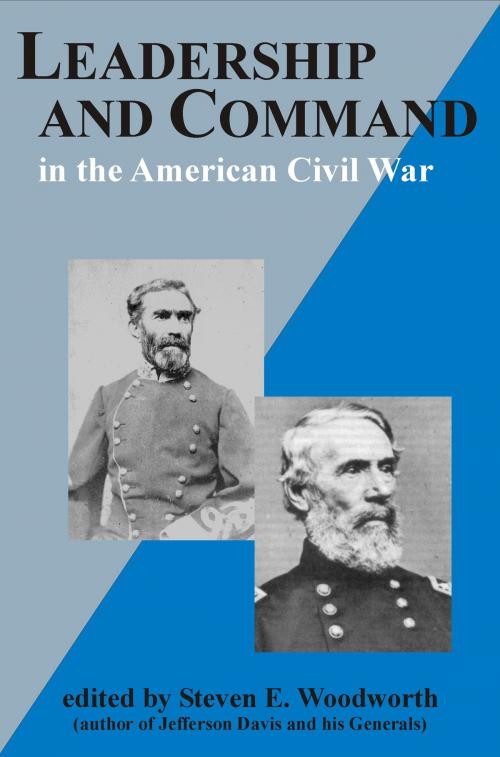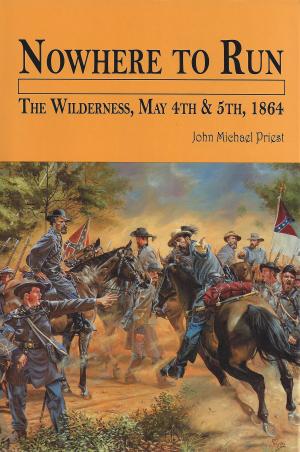Leadership and Command in the American Civil War
Nonfiction, History, Americas, United States, Civil War Period (1850-1877)| Author: | Steven E. Woodworth | ISBN: | 9781940669076 |
| Publisher: | Savas Publishing | Publication: | November 1, 2013 |
| Imprint: | Savas Publishing | Language: | English |
| Author: | Steven E. Woodworth |
| ISBN: | 9781940669076 |
| Publisher: | Savas Publishing |
| Publication: | November 1, 2013 |
| Imprint: | Savas Publishing |
| Language: | English |
Leadership and Command is a unique collection of five carefully-crafted essays by leading scholars, each dealing with an important and understudied slice of history from the epic events of 1861-1865.
Georgia historian Richard McMurry inaugurates this compendium by directing the bright spotlight of scrutiny upon Confederate General Joseph E. Johnston’s early-war tenure of command in the Eastern Theater of operations. It was in Virginia, asserts McMurry, that the seeds of several Southern disasters were initially sown.
Economist Edward Carr Franks examines Western Theater issues of strategy by challenging long-held assumptions about Braxton Bragg’s controversial decision to detach an entire corps of his army under James Longstreet on a mission to capture Knoxville. Franks argues that this division of force in the face of the enemy was not responsible for the crippling defeat that followed at Missionary Ridge a few weeks later.
Retired Army officer Marion V. Armstrong reexamines the controversial command decisions made by Federal II Corps commander Maj. Gen. Edwin V. Sumner at Antietam, that led to the slaughter of one of his divisions in the West Woods and a series of bitter recriminations that echo to this day.
Although George E. Pickett’s name will forever be associated with the glory inherent in the assault on the third day at Gettysburg, his record as a general during the war’s final years is replete with defeat, shocking lapses of command, mental breakdowns, and a deadly controversy. Historian Lesley J. Gordon critically examines Pickett’s virtually unknown career after Gettysburg, which almost earned him a date with a Federal war crimes tribunal.
Steven E. Woodworth completes this collection with an insightful assessment of Gen. Pierre G. T. Beauregard’s battlefield performance in the Bermuda Hundred Campaign. Was it, as his defenders have claimed, a masterful display of generalship, or simply another example that the Louisiana general was unfit for field command?
Leadership and Command is a unique collection of five carefully-crafted essays by leading scholars, each dealing with an important and understudied slice of history from the epic events of 1861-1865.
Georgia historian Richard McMurry inaugurates this compendium by directing the bright spotlight of scrutiny upon Confederate General Joseph E. Johnston’s early-war tenure of command in the Eastern Theater of operations. It was in Virginia, asserts McMurry, that the seeds of several Southern disasters were initially sown.
Economist Edward Carr Franks examines Western Theater issues of strategy by challenging long-held assumptions about Braxton Bragg’s controversial decision to detach an entire corps of his army under James Longstreet on a mission to capture Knoxville. Franks argues that this division of force in the face of the enemy was not responsible for the crippling defeat that followed at Missionary Ridge a few weeks later.
Retired Army officer Marion V. Armstrong reexamines the controversial command decisions made by Federal II Corps commander Maj. Gen. Edwin V. Sumner at Antietam, that led to the slaughter of one of his divisions in the West Woods and a series of bitter recriminations that echo to this day.
Although George E. Pickett’s name will forever be associated with the glory inherent in the assault on the third day at Gettysburg, his record as a general during the war’s final years is replete with defeat, shocking lapses of command, mental breakdowns, and a deadly controversy. Historian Lesley J. Gordon critically examines Pickett’s virtually unknown career after Gettysburg, which almost earned him a date with a Federal war crimes tribunal.
Steven E. Woodworth completes this collection with an insightful assessment of Gen. Pierre G. T. Beauregard’s battlefield performance in the Bermuda Hundred Campaign. Was it, as his defenders have claimed, a masterful display of generalship, or simply another example that the Louisiana general was unfit for field command?















